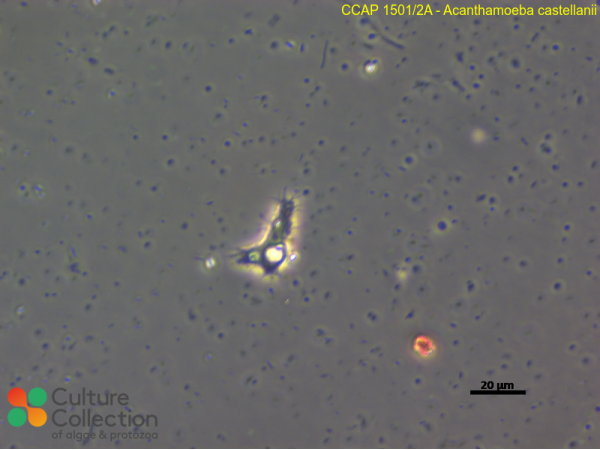Note: for strains where we have DNA barcodes we can be reasonably confident of identity, however for those not yet sequenced we rely on morphology
and the original identification, usually made by the depositor. Although CCAP makes every effort to ensure the correct taxonomic identity of strains, we cannot guarantee
that a strain is correctly identified at the species, genus or class levels. On this basis users are responsible for confirming the identity of the strain(s) they receive
from us on arrival before starting experiments.
For strain taxonomy we generally use AlgaeBase for algae and
Adl et al. (2019) for protists.
| Attributes | |
| Authority | (Douglas) Volkonsky 1931 |
| Isolator | Castellani (1930) |
| Collection Site | Yeast culture England, UK |
| Archive Date | 2017-10-05 12:48:36 |
| Archive Reason | Dead |
| Axenicity Status | M,X |
| Environment | Freshwater |
| Group | Protozoa |
| Pathogen | Potential Pathogen: Hazard Class 2 |
| Toxin Producer | Not Toxic / No Data |
| Type Culture | Yes |
CCAP 1501/2A
Acanthamoeba castellanii
- Product Code: CCAP 1501/2A
- Availability: Archived



